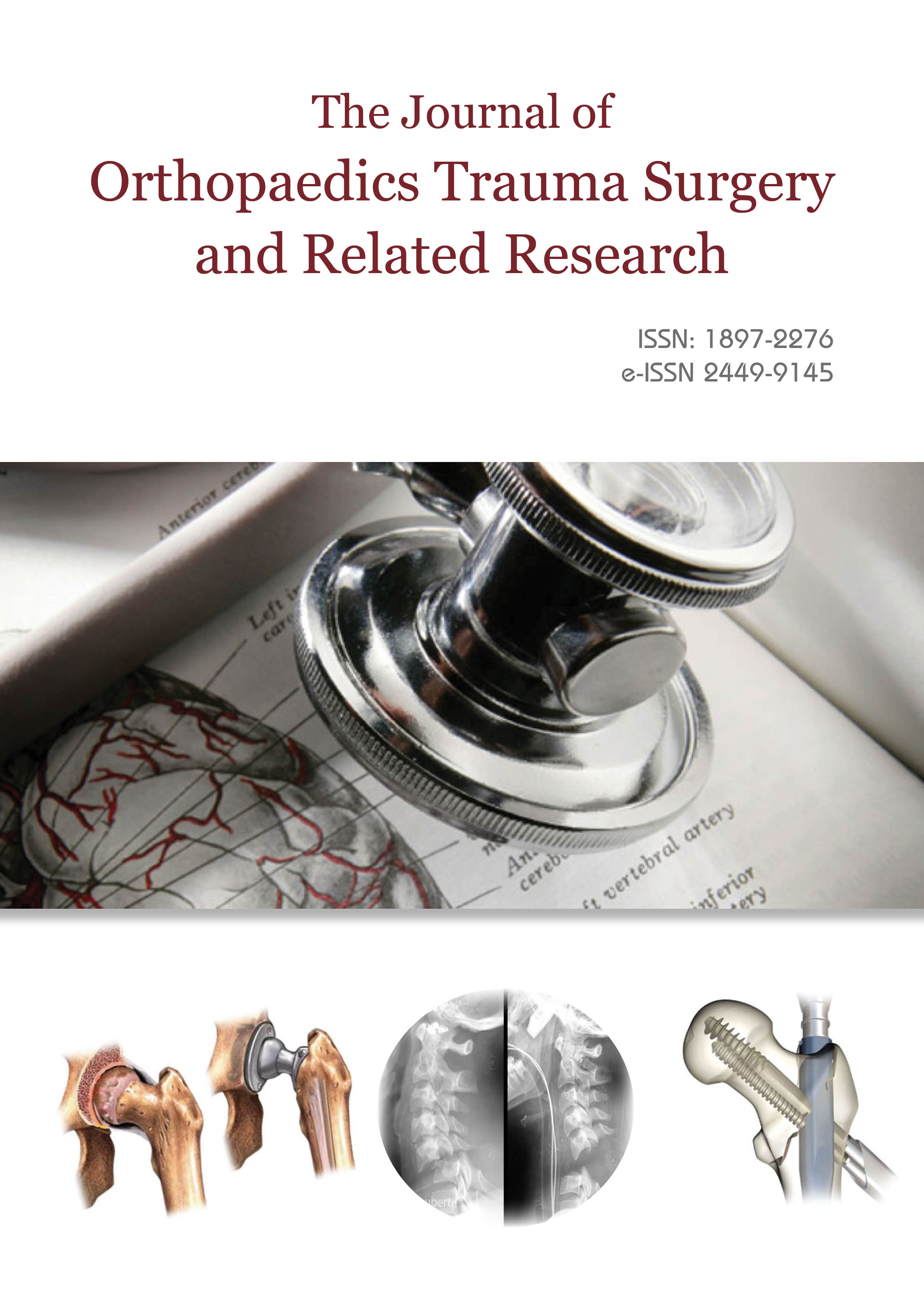Journal of Orthopaedics Trauma Surgery and Related Research

An Official Journal of Polish Society of Orthopaedics and Traumatology
ISSN:1897-2276
e-ISSN: 2449-9145

An Official Journal of Polish Society of Orthopaedics and Traumatology
ISSN:1897-2276
e-ISSN: 2449-9145
Introduction. The aim of the study was to evaluate the quality of life in patients who had undergone total hip replacement due to degenerative disease with the mean time of observation 7.34 (±4.73). Material and methods. The research was conducted on a group of 55 patients (mean age = 69 years, SD ± 8). The quality of life was evaluated based on the WHOQOL-BREF quality of life assessment scale, the Harris Hip Score and the VAS scale. The examined variables were subject to statistical analysis by means of the STATISTICA 9.0. software for Windows, based on Pearson’s linear correlation coefficient (p<0.05). The dependence between the examined scales of the quality of respondents’ life was analyzed by means of the Mann-Whitney U test. Results. The research has demonstrated that over 74% of the respondents have abandoned their previous physical activity and a considerable number of the respondents – 43.64% - had to give up their hobbies. The research has also shown that the body mass and the BMI have a statistically significant effect on the quality of life in somatic terms. A rising BMI was accompanied by an increasing subjective pain sensation. The amount of time which has passed since the hip replacement procedure had a significant impact on the pain sensation and the decreased quality of patients’ life. The quality of patients’ life decreased in all areas of life as a result of the increased pain sensation. Conclusions. The quality of respondents’ life deteriorates and the pain sensation intensifies as more time has passed since the hip replacement procedure. No statistically significant difference was found between the male and female respondents with respect to the quality of life and the experienced pain sensation.
Select your language of interest to view the total content in your interested language
 Journal of Orthopaedics Trauma Surgery and Related Research a publication of Polish Society, is a peer-reviewed online journal with quaterly print on demand compilation of issues published.
Journal of Orthopaedics Trauma Surgery and Related Research a publication of Polish Society, is a peer-reviewed online journal with quaterly print on demand compilation of issues published.